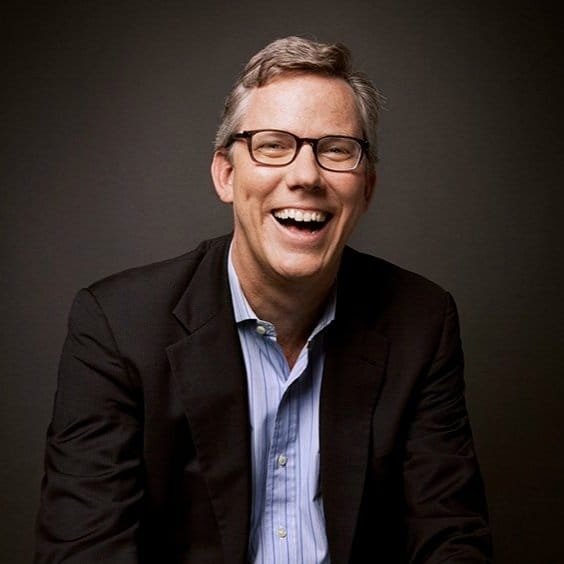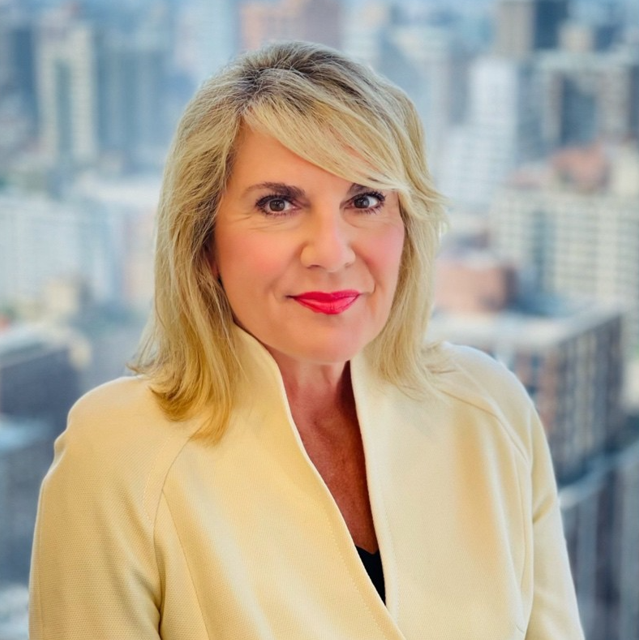Several years ago, I interviewed Brian Halligan, co-founder and former CEO of HubSpot in an interview originally published in Thrive Global. Brian was the CEO of HubSpot at time of the interview. Here is an excerpt from our conversation:
Adam: What is something about you that would surprise people?
Brian: People are often surprised to hear that in college I studied electrical engineering. I’ve been in sales and marketing my entire career, but I still like getting into the technical minutia when I can.
Adam: What are your hobbies and how have they shaped you?
Halligan: I’ve followed the Grateful Dead since I was in high school. They gave away “freemium” content by freely letting fans record and share bootleg tapes — and developed a dedicated base of lifetime fans. They were doing “Inbound marketing” before the rest of us discovered it and were a significant source of inspiration for me when Dharmesh [Shah] and I were forming our initial vision of HubSpot.
Adam: How did you get here? What failures, setbacks, or challenges have been most instrumental to your growth?
Halligan: When I was in my mid-20s, PTC sent me to Japan to open and run Asian sales and operations for the company. We were in hypergrowth and were making up a lot of the international playbook as we went along. In those days, you could make a lot of mistakes doing trial-and-error but still bring in a ton of money. I learned how to open a new international office, and how to scale a new office– two entirely different exercises. One lesson I learned — the hard way — is that the first person hired in a new office is critical. It needs to be someone from the bench from headquarters to bring the way of working to that office to make sure it aligns with the rest of the organization. Then, after a year or two, it is time for that leader to hand the reins to a local, homegrown talent to run that office to scale it. That has served as an efficient and effective model for HubSpot as we continue to expand internationally.
Adam: What is your best advice on building, managing, and leading teams?
Brian: Two mistakes I made in the early days of HubSpot were: 1) Trying to make all the decisions myself. 2) Making a decision but then reversing it at some point down the line. I don’t do either anymore, and HubSpot is better for it.
On the first point, a lot of this is just about letting go. I’d advise leaders to hire really good people with judgment that you trust and empower them to make decisions. I try to minimize the day-to-day decisions I’m a part of so I can focus my time and energy on the bigger calls.
On the second point, reversing decisions is expensive and painful for the people involved. Slowing down the decision-making process helps with this — bring in many viewpoints at the start so you’re not hearing a crucial point of view after a conclusion has been reached. Then, “disagree, then commit.” We may not always agree on the details of every decision, but once we come to a conclusion we try very hard not to roll it back.
Adam: How can leaders and aspiring leaders take their leadership skills to the next level?
Brian: A good coach will help you get to the next level. Focus on a few things and do them well. I keep a brutally short list of monthly priorities, and I guard my time to work on them, including a single day per week without meetings or disruptions.
Adam: What are your three best tips applicable to entrepreneurs, executives, and civic leaders?
Brian: Early in your career, work somewhere at large scale and be exposed to the dozens of things you’ll need to know later. When you begin to hire, take diversity into consideration at the start. When you’re a small startup, say yes to a lot of things; when you are scaling, say no more often.
Adam: What do you believe everyone who works in marketing should know?
Brian: Buyers have lost faith in traditional sources, most especially in vendors’ sales and . marketing. The loudest voice in the market is not your blog or your content, it’s your customers. Successful companies used to win by having a product that is 10x better than the competition, but now companies need to have a customer experience that is 10x better.
At HubSpot, we’ve had to change a lot about how our teams function to reflect these new realities. Over the last two years, we’ve made a real shift in investment to emphasize the customer experience more than ever — I personally am also spending more of my time with our customer success teams than I used to. We goal our customer marketing team and sales teams on customer success now, not just bringing in new business. Our product team has an NPS (Net Promoter Score) goal. All of this means that the customer experience and customer value are front and center for all our teams, not just the teams providing services and support.
One key to a compelling customer experience is the ability for any employee — marketing, sales, service — to have a single, complete view of all a customer’s activity. Marketing teams need to make sure their systems are part of a larger canvas.
Adam: What is the single best piece of advice you have ever received?
Brian: Feedback is the breakfast of champions. I (and many of our executives) undergo an annual ”360-degree review,” where our peers and direct reports provide feedback to a third party who then compiles it into a holistic summary of our strengths and weaknesses. It’s an uncomfortable process for sure, but it’s been one of the best ways I have to understand how I’m making my team’s lives easier and harder.
Adam: What is one thing everyone should be doing to pay it forward?
Halligan: The phrase ‘pay it forward’ assumes some of the answer: maintain the humility to recognize you did not get here by your own strength and ability.
Adam Mendler is an entrepreneur, writer, speaker, educator, and nationally recognized authority on leadership. Adam is the creator and host of the business and leadership podcast Thirty Minute Mentors, where he goes one-on-one with America’s most successful people – Fortune 500 CEOs, founders of household name companies, Hall of Fame and Olympic gold medal-winning athletes, political and military leaders – for intimate half-hour conversations each week. A top leadership speaker, Adam draws upon his insights building and leading businesses and interviewing hundreds of America’s top leaders as a top keynote speaker to businesses, universities, and non-profit organizations. Adam has written extensively on leadership and related topics, having authored over 70 articles published in major media outlets including Forbes, Inc. and HuffPost, and has conducted more than 500 one on one interviews with America’s top leaders through his collective media projects. Adam teaches graduate-level courses on leadership at UCLA and is an advisor to numerous companies and leaders. A Los Angeles native, Adam is a lifelong Angels fan and an avid backgammon player.
Follow Adam on Instagram and Twitter at @adammendler and on LinkedIn and listen and subscribe to Thirty Minute Mentors on your favorite podcasting app.









